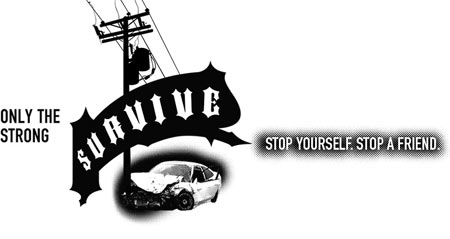
Get Involved
Underage DUIs are not inevitable, so don't be a pushover when it comes to keeping teens from drinking and driving.
Getting involved really will help keep your teen from using drugs or alcohol and driving under the influence. Teens don't want to disappoint their parents. What their parents think is the most important thing teens consider when deciding whether to use alcohol or drugs. Here's the proof: Teens who talk to their parents about drugs, alcohol, and DUIs are 50% less likely to do these risky activities.
When you talk, your teen really does listen. It's never too early to talk with your teen about alcohol, drugs, and DUIs. Set up clear rules and consequences and follow through with them if your teen doesn't follow the rules. Your teen will try to test your limits. Don't bend the rules for a special occasion or give in to whining. Always follow the rules so your teen knows what to expect and respects your decisions.
You also have to be the role model for your teen. Talking the talk is not good enough; you have to practice what you preach. So don't drink and drive or show your teen that you think teen drinking is okay. And always wear your seatbelt when in the car.
Here's a good plan of action:
- Keep an eye on your teen's behavior. Know where he or she is, what he or she is doing, and who he or she is with. Make sure your teen knows that you want to know because you care.
- Talk with your teen about the risks involved in using alcohol and other drugs and DUIs, but don't argue about it. Stick to the facts.
- Be a role model. Show teens they can have fun and be cool without drinking, using drugs, or driving intoxicated.
- Discuss the rules your teen is expected to follow and the consequences for breaking them. Your teen is more likely to stick with the rules if he or she has a say in making them. So create the rules together.
- Show you care about your teen's health. Encourage your teen to eat well, run or play sports, and drive safely.
- Stay informed. Keep yourself in the loop. Learn about the dangers of risky behavior so you can help educate your teen.
- Be fair. Don't have fewer consequences for teen boys. Teen girls and boys should be treated equally.
What do you do if you think your teen has a problem with drugs or alcohol?
- Talk to your teen directly about your concerns. Try not to judge or get angry; that will drive your teen away. If you have problems getting through, seek professional help.
- If the situation gets out of control, seek professional help as soon as you can.



